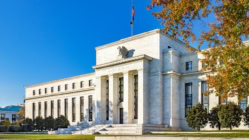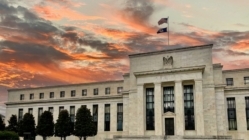
WHY NO INFLATION AFTER 2008
After the 2008 mortgage meltdown, the Fed and congress stepped in with trillions of dollars of “Quantitative Easing” (buying of Treasuries and Mortgage-Backed Securities) and stimulus spending – and numerous market watchers and pundits, e.g. Arthur Laffer, predicted massive inflation.
They were all wrong for several reasons, including the fact that we were already in a deflationary environment, and, more importantly, banks largely stopped lending and consumers did not spend like they did in the past – so the newly created money did not turn over or end up in the economy. This Investopedia article explains this in more detail.
2021 DWARFS 2008
The level of spending and Quantitative Easing (QE) we are seeing in 2020 and 2021 literally dwarfs anything we saw after 2008 – so will we see inflation this time?
According to this WSJ Opinion Piece, we are likely to see inflation b/c our current situation parallels the early 1970s so much – when inflation quickly spiked to 11%!
Those conditions include supply constraints (today they are COVID-related but back then they related to the oil embargo and price controls) and very strong demand like we are seeing now that COVID constraints are loosening and stimulus funds are starting to circulate.
But, for every article I can find that predicts inflation, I can find five more that predict deflation. Jeff Booth, who wrote The Price of Tomorrow last year, is a great example of a deflation predictor, as is Barry Habib – who I cite often.
WHY DEFLATION?
The deflation crowd focuses on: (1) supply chains opening up and allowing input costs to go down; (2) the ability of technology to lower costs in almost any environment; and (3) the strong likelihood of a recession given the nature of our economy right now and the high unemployment rates.
WHO’S RIGHT?
Nobody has a clue who is right, as I remind everyone often, and the one thing all the pundits do now is hedge their bets by pointing out that even they could be wrong – and that everything really comes down to timing.
Barry Habib, for example, seemed pretty convinced a few months back that we would see deflation and lower rates later this year, but he now seems to be backing off on that prediction in light of the current administration’s massive spending and QE plans, and all the pent up demand in our economy.
So, if we do see deflation, it will probably be short-lived before inflation sets in.
Deflation will likely result in lower interest rates while inflation will likely result in much higher rates.
And further, inflation and deflation significantly affect asset prices and different asset classes in very different ways.
For example, commodities and precious metals perform well in inflationary environments, as does real estate in many cases, while bonds perform very poorly.
So, what should we do in the face of all this uncertainty?
DIVERSIFY
I am not a financial planning expert and am merely repeating what I have been reading from pundits across the ideological spectrum.
But, most of them seem to be recommending massive diversification across markets and asset classes.
Asset classes include precious metals, crypto, commodities, stocks, bonds, and, of course, real estate.
And even specific asset classes can be massively diversified, as precious metals include gold, silver and platinum; real estate includes single-family, multi-family, and commercial; and stocks include pretty much everything.
Diversification among markets includes not only going to different cities and states (for real estate) but also to different countries.
And yes, even lower net worth investors can diversify with the use of various funds, including ETFs, Mutual Funds, REITs, etc.
WHY DIVERSIFY?
There are numerous “horror stories” of people who put all their money into bonds prior to the 1970s inflation and lost almost everything; of people who put all their money into dotcom stocks in the late 1990s and lost everything; and even of individuals who clamored into tech stocks last year and lost enormous amounts of money.
When inflation, deflation, fiscal policy and/or monetary policy can affect asset classes so much, diversification is key for financial survival.
Jay Voorhees
Founder/Broker | JVM Lending
(855) 855-4491 | DRE# 1197176, NMLS# 310167
























